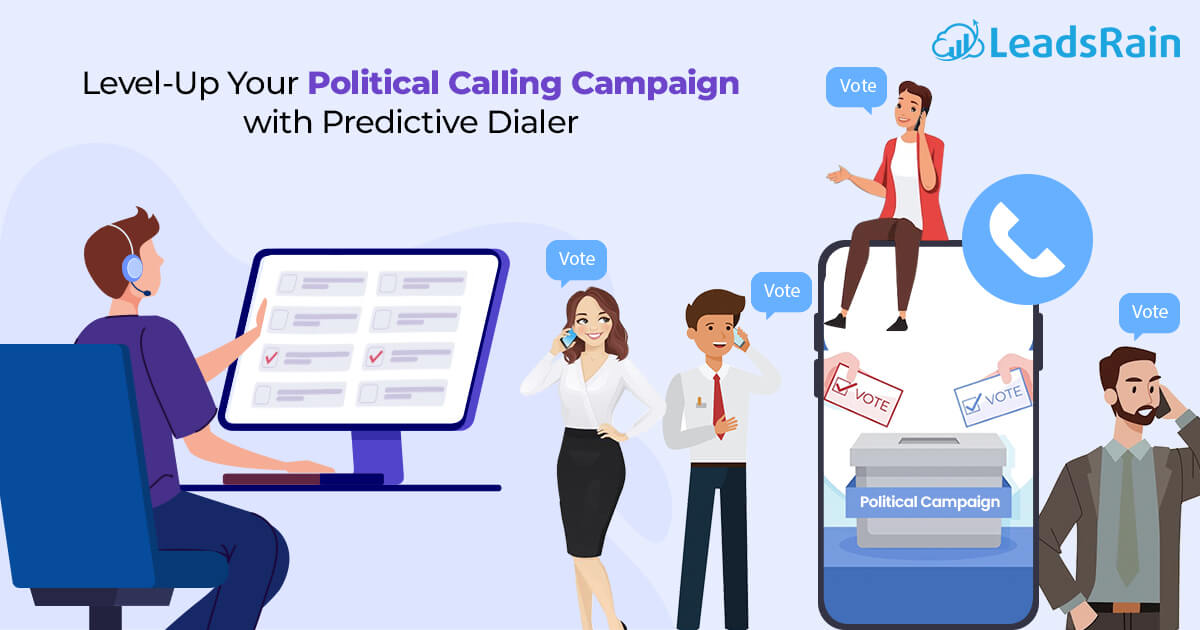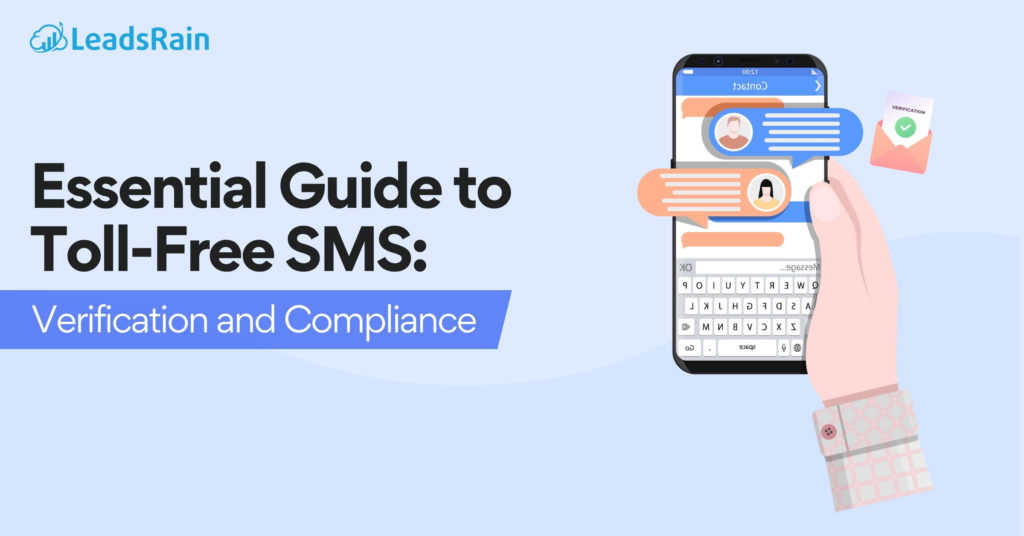Running a political calling campaign can effectively engage voters, disseminate information, and rally support for a candidate or cause. And if you’re looking to supercharge your outreach efforts, incorporating a predictive dialer into your campaign can significantly boost your productivity and success. In this article, we’ll walk you through the essential steps and techniques to run a successful political calling campaign with a predictive dialer, so you can make the most impact and reach as many potential supporters as possible.
Why choose Predictive Dialer for Political Cold Calling Campaign?
Political cold-calling software is a specialized tool designed to assist political campaigns, grassroots organizations, or advocacy groups conducting outbound phone calls to potential voters, supporters, or constituents. It streamlines the process of making a large volume of cold calls efficiently and effectively. With a predictive dialer, your agents can focus on what matters: engaging in meaningful conversations rather than wasting time on dialing.
How to Set Up Your Political Cold Calling Campaign with a Predictive Dialer?
Political cold-calling software empowers political campaigns to reach out to potential voters, engage supporters, and disseminate information efficiently. It maximizes the productivity of campaign agents while providing tools to monitor and improve their performance.
Let’s take a look at a few steps to set up your political cold-call campaign.
1. Building Your Calling List
The first step toward a successful political calling campaign is to build a well-organized and targeted calling list. Identify your target audience based on demographics, location, or voting history. Tap into voter databases, public records, or reliable third-party data providers to create a comprehensive list of potential supporters. Remember that a clean and up-to-date list is key to avoiding wasted time on invalid or irrelevant contacts.
Now, let’s talk about incorporating keywords into your calling list. Keywords are magic words that help you identify individuals more likely to resonate with your campaign. For instance, if your campaign revolves around education reform, consider keywords such as “education,” “students,” “schools,” and “reform” to pinpoint individuals who are passionate about the topic. By targeting specific keywords, you can ensure that your campaign reaches the hearts and minds of those who care deeply about the issue.
2. Crafting a Compelling Script

You need a script that speaks to your audience to make your political calling campaign impactful. Craft a compelling message tailored to address key issues, highlight your candidate’s strengths, or communicate the importance of your cause. Make it concise, persuasive, and, above all, respectful.
Remember, your script is your voice during these conversations, so use it wisely. Incorporate those important keywords we discussed earlier to reinforce your message and make it stick in the minds of your audience. By infusing keywords strategically throughout the script, you can create a lasting impression and build a stronger connection with potential supporters.
3. Training and Equipping Your Agents
Empowering your agents with the right skills and knowledge is essential for effective communication. Conduct thorough training sessions to familiarize them with the script, key talking points, and the predictive dialer system. Encourage active listening, empathy, and professionalism during interactions. Equip your agents with comprehensive FAQs or talking point documents to handle common inquiries or objections.
Training your agents on the effective use of keywords is equally important. Help them understand when and how to naturally incorporate keywords into conversations. When used correctly, keywords can help your agents connect with voters on a deeper level and demonstrate a genuine understanding of the issues at hand.
4. Compliance with Regulations

Compliance is crucial when it comes to running a political calling campaign. Ensure you adhere to local, state, and national regulations governing such campaigns. Familiarize yourself with calling hours, Do Not Call (DNC) lists, and opt-out mechanisms. Show respect for the privacy and preferences of individuals on your calling list to maintain a positive image for your campaign.
Educate your agents about compliance regulations and provide clear guidelines for handling situations involving the DNC list or opt-out requests. Emphasize respecting individuals’ choices and ensuring their privacy rights are upheld. By maintaining a strong compliance framework, you meet legal requirements and build trust and credibility with potential supporters.
5. Testing and Optimization

Regularly monitor and evaluate your campaign’s performance to identify areas for improvement. Leverage your predictive dialer’s analytics and reporting features to track key metrics such as call volume, call duration, conversion rates, and agent productivity. Analyze the data to refine your calling strategy, adjust scripts, or target specific demographics more effectively.
Use the data provided by the predictive dialer system to gain insights into the effectiveness of your keyword usage. Analyze the correlation between the use of keywords and the outcomes of conversations. Determine which keywords generate the most positive responses or lead to higher engagement rates. You can refine your campaign to achieve optimal results by continuously testing and optimizing your keyword strategy.
6. Personalization and Follow-Up
While the predictive dialer automates the dialing process, it’s essential to personalize interactions with potential supporters. Address recipients by name, reference specific issues relevant to their region or interests and make the conversation genuine and engaging.
Additionally, plan follow-up actions such as sending a Press 1 campaign for a political survey, physical campaign materials, directing individuals to your website, or scheduling further discussions to deepen connections and maintain engagement.
By incorporating the keywords into personalized conversations, you can demonstrate your campaign’s relevance to each individual’s concerns or interests. Acknowledge their specific needs or aspirations, and show how your candidate or cause aligns with their values. Personalized follow-up actions, such as sending campaign literature or providing additional resources, can strengthen your connection and nurture ongoing support.
Conclusion
Running a political calling campaign with a predictive dialer can be a game-changer for your campaign’s success. By harnessing the power of automation, targeted outreach, and data-driven optimization, you can maximize your impact, effectively communicate your message, and rally support for your cause or candidate. Through careful planning, training, compliance, and personalization, your campaign can engage voters, drive meaningful conversations, and achieve the desired outcomes.
Remember to build a well-curated calling list, craft an engaging script, train your agents, and ensure compliance with regulations. By implementing these strategies and techniques, you can run a highly efficient and impactful political calling campaign that truly connects with voters on a personal level.
Wanted to know more or want our experts to help you set up your campaign? – Call us now or write us at support@leadsrain.com




